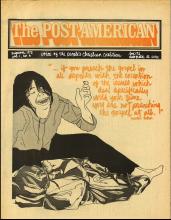Jesus was a feminist, that is, a person who promotes the equality of women with men, who treats women primarily as human persons and willingly contravenes social customs in so acting. The gospels give no evidence of Jesus ever treating women as inferior to men. When the restricted state of women in the Palestinian Judaism of that time is recalled, even this mere absence of a male superiority attitude is extraordinary.
Women, for example, normally were not allowed to study the Scriptures (Torah); one first-century rabbi, Eliezer, put the point sharply: “Rather should the words of the Torah be burned than entrusted to a woman. Whoever teaches his daughter the Torah is like one who teaches her lasciviousness.” Women were not counted toward a quorum (minyon) for worship. Women could not bear witness. A good man would not speak to a woman in public; a rabbi would not address even his wife or daughter in the street. A menstruous woman was ritually unclean, as was anyone or anything she touched.
Jesus, however, publicly, repeatedly rejected these oppressive customs.
Though a rabbi, Jesus often addressed women, even women of ill repute, in public, and he spoke to them as primarily human persons, not as “sex objects,” as for example, the thrice-married Samaritan woman, the woman “taken in adultery,” and Mary Magdalene. Moreover, he regularly taught women the Torah.
Jesus also very deliberately rejected the Jewish prohibition against women bearing witness. For example, his first appearance after his resurrection was to a woman, whom he then commissioned to bear witness to the Eleven.
Read the Full Article

